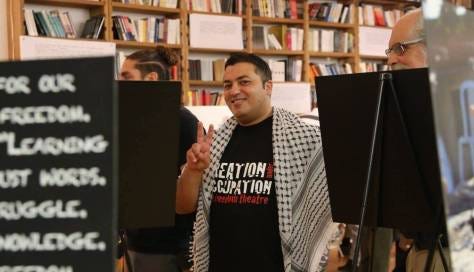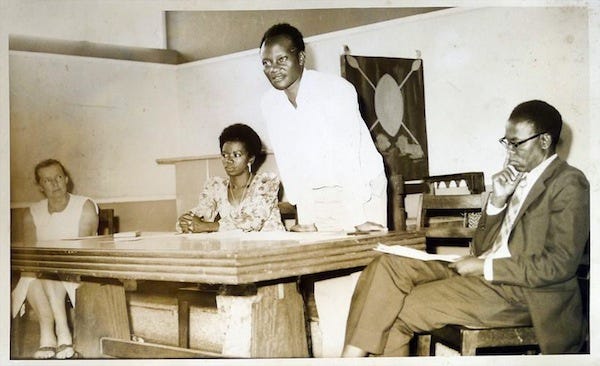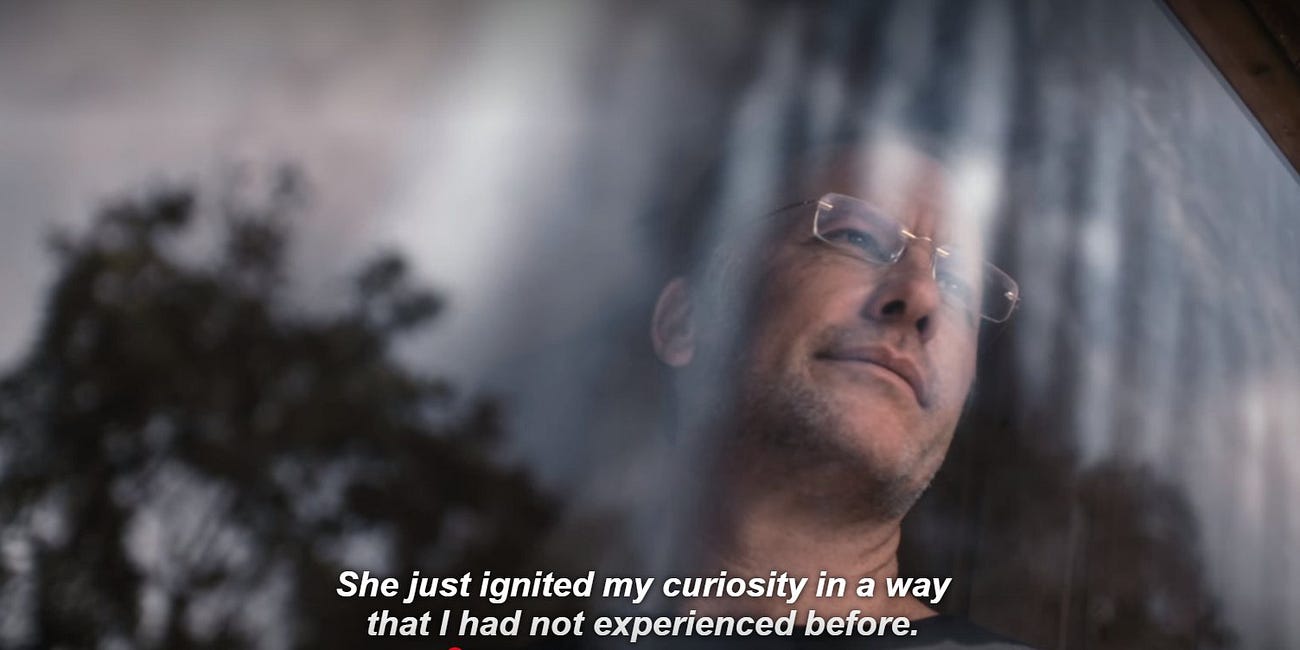On Wednesday, 13th December 2023, Israeli soldiers targeted the building of Jenin’s Freedom Theatre, and following a shooting attack that caused damage to the offices and staff, they arrested some of the organisation’s artists without charge. Jamal Abu Joas was detained and has subsequently been released, but the theatre company’s producer, Mustafa Sheta, remains held.
The way that I will mark this anniversary of detention is by dedicating today’s edition of Critmas to the various ways in which we cannot take freedom of expression, by artists or anyone else, for granted. It remains a volatile provision.
I am not going to put the fall of liberal democracy in the hands of a bunch of undergraduate students at Russell Group universities in the 2010s, but, as someone who was studying at the time, one of the aspects of feminist and leftist spaces I found the most difficult was the complacency around certain human rights — it would not be uncommon to see it described as ‘~*freeze peach*~’ in a mocking tone in places like the facebook group, Cuntry Living.
I apologise to those who lived through Cuntry Living and have tried to forget their participation, but for context: Cuntry Living was the digital offshoot of an Oxford University zine that wound up with thousands of members across the country, at a time when student women’s societies were campaigning for adequate street light provision, debating what good sticking Jane Austen on a bank note would do for women, Sisters Uncut were forming in response to post-2010 austerity, the New Statesman was unsure about intersectionality and rights for trans people and sex workers were becoming increasingly polarising.
But it was also only a few years after Obama was elected and Trump’s ‘birtherist’ conspiracies about him felt comically irrelevant, and while Marine Le Pen was getting counter-protested when she spoke at the Cambridge Union Society, we were a far way off Meloni’s ascent in Italy and Germany’s AfD posing a credible far-right threat. I was in my third year of university, and remember handing in a political philosophy essay where I would glibly describe what I called ‘the fact of liberalism.’ While I never doubted neo-Nazis existed and needed countering, nor that Fortress Europe had its problems, I too took for granted a certain level of centrism, which I put down to growing up at a time lots of Western democracies felt very sure of themselves and their populations’ prospects. 2008 disrupted that. Gordon Brown alienated a lot of people for describing a voter he encountered during the 2010 general election a ‘bigoted woman’ for having immigration as her top concern, but I think he was most out of touch for was saying, repeatedly, that New Labour had brought an end to boom and bust.
All this scene-setting is to say that I understand where the ‘freeze peach’ meme came from, even if I suspect I was a little too second-gen to be entirely relaxed about it. While I couldn’t have given you examples of suppressed artists, intellectuals or other figures other than my godmother’s doctor father, who died at the hands of Idi Amin’s soldiers, between vague knowledge of that history, learning about the forced labour camps in Mao’s regime during A Level History, and the rumour that Salman Rushdie stayed nearby my family’s home in Cricklewood/Golders Green while the fatwa was out against him, I have an antenna out for this stuff.
Alongside Jamal Abu Joas and Mustafa Sheta, I do now have examples. A few years ago, I was interested in understanding a little bit about 20th century theatre in Uganda and came across the name of Rose Mbowa. I won’t link to the Guardian’s obituary, as journalists at the Observer are on strike at the moment and have asked for a digital picket line that discourages sharing pages on their website, but it was there that I learnt of one of her formative experiences as a theatremaker. It was 1977, and she was in rehearsal at the National Theatre in Kampala, when her mentor and director, Byron Kawadwa, was dragged out by soldiers and murdered. You can read more about the difficulties Ugandan theatre experienced in subsequent years in this article that I’m partway through.
Such events — extrajudicial killings of artists — are shocking but not alien to these shores either. A few weeks ago, we had a staff training day at work where we went through a radical history of the trade union. One person highlighted to us was a Glaswegian working class comic and communist, who was taken to a forest and shot in the head by loyalist paramilitaries who came over from Northern Ireland. To my great shame, I have forgotten the member’s name, and the sobering fact is that if you google ‘sectarian killing Glasgow 1960s/1970s/1980s -ai' there are too many deaths to find the correct person. I will ask at work though, and will edit this piece with his details once I get them, as the archive photo of him speaking to a small crowd while campaigning has really stayed with me.
And what of the present day for artistic expression in the UK? Well, it’s better than in Germany, where the relatively high level of state and local investment for culture is being used as a weapon to defund those who are currently critical of the Israeli attacks in Gaza and the West Bank. Over the last year, I have seen numerous examples of academics and artists, including Jewish figures such as Nancy Fraser and Jewish-Israeli filmmakers selected for festivals in Germany, share emails withdrawing professorships, residencies and called antisemitic for their support of Palestinian liberation. Closer to home, the Charity Commission’s role to prevent political activity or campaigning has resulted in a lot of nervousness from arts leaders and their boards of trustees.
I’m not going to flatten instances of military and paramilitary executions by saying our current environment is the same, but it is stifling for many. And not just with respect to Palestine either — yesterday, Josie Dale-Jones announced a two-leg tour of her company ThisEgg’s show A Little Inquest Into What We Are All Doing Here. It premiered at this year’s Edinburgh Fringe and is a response to the furore and cancellation of what was meant to be ThisEgg’s 2022 work, The Family Sex Show. Through Freedom of Information requests, Dale-Jones discovers email communication between Arts Council England and Department of Culture, Media and Sport employees, where they eventually suggest moving to telephone to avoid having a paper trail. This is significant as the arts councils of England, Wales and Northern Ireland, as well as equivalent body Creative Scotland, are supposed to be at arms length and independent from central government. I am glad the show, which I saw and found lacking in self-pity but also was interesting to watch, is getting a further life in 2025. I hope it starts some conversation. It has been three years since I wrote about this, but the problem outlined is getting worse: ‘degeneracy’ is becoming an all-too familiar word in conversation.
#17: "degeneracy"
I defend the right of people to be basic. Last year, during a late spring lockdown walk home, I noticed someone on my road had a ‘Good vibes only’ mini-cinema title display in their living room window. Good for them! I thought; lord knows we need a bit of positivity at the moment.





